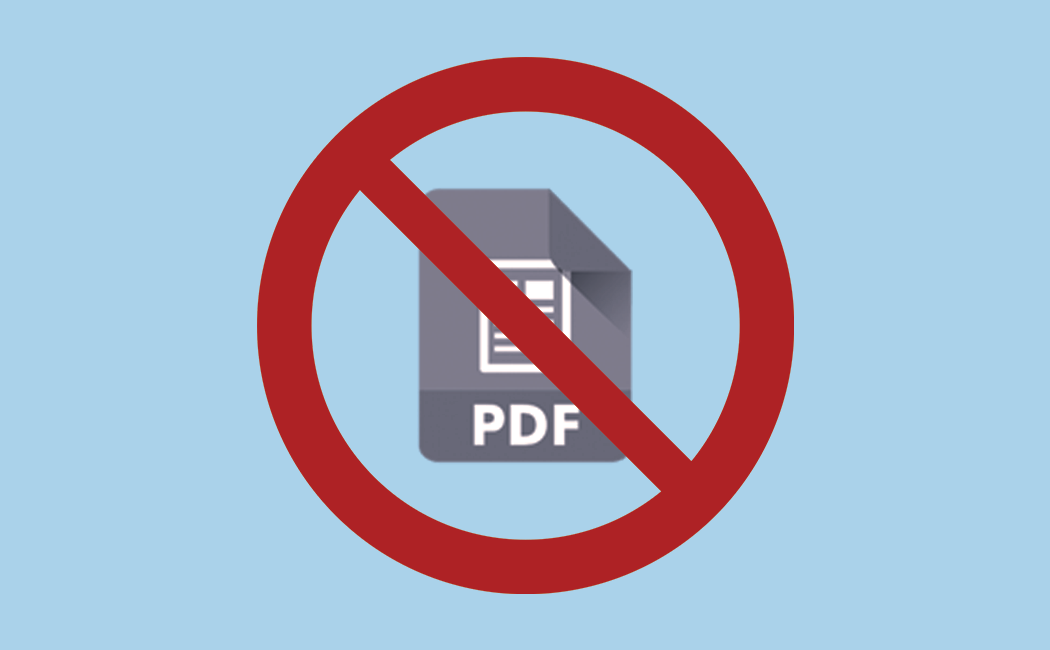We all know the frustration we feel when we come upon a PDF when searching for a piece of information. Jakob Nielsen and Anna Kaley confirm that we are not alone and that the Nielson Norman Group’s 20 years of research on PDFs has determined that PDFs are “still unfit for human consumption.”
They highlight several usability issues with PDFs presented in place of web content:
- PDFs are an inherently linear format, which forces users to manually search for the content they are looking for.
- PDFs provide users with a jarring change in user experience from the web pages they were previously viewing.
- PDFs often take much longer than a web page to load.
- PDFs tend to be more verbose with more content bloat which makes them difficult for users to find the information they are searching for.
- PDFs disorient users as users can be confused by PDFs opening the same tab/window or PDFs opening in new tabs/windows. In all cases, the standard website navigation disappears and the browser back button behavior can seem inconsistent (if the PDF opens in a new tab/window).
- PDFs frequently lack internal navigation and even for those that do have internal linking, there is no mechanism (other than scrolling) to go back to a linked index for users who have clicked on the wrong link.
- PDFs are sized and laid out for paper, not screens. For users who are trying to read PDF content on a screen, they will almost always have an inferior experience to reading an equivalent web page on the same device.
The Norman Nielson Group’s research continues to highlight that users of all levels dislike PDFs and even dread having to interact with them on websites. One user quote that highlights this feeling: “I didn’t think it would be a PDF document. Oh, oh, goodness.”
The recommended approach for sharing PDF content on the web is to deliver the vital portions of the content as standard web page content with the PDF as a supplemental download for users who wish to download and print the content.
While it may seem efficient to simply repurpose PDFs you already have created to add content to your website, you may well be distressing your users and reducing your website usability (to say nothing of hurting your website accessibility and SEO) when you do.



Add new comment